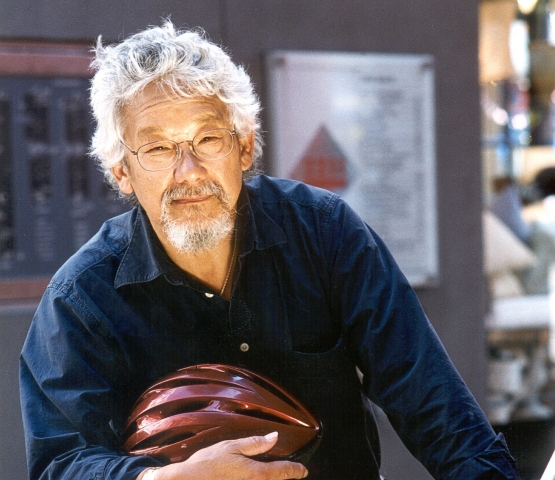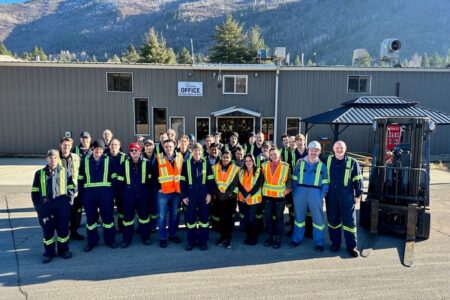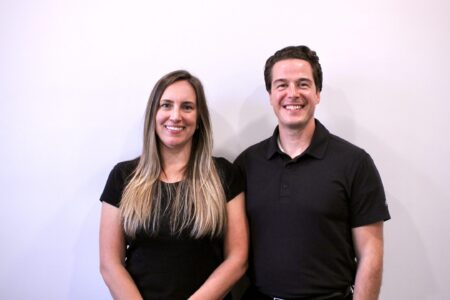Sustainable Development Goals: A Path to Prosperity
By David Suzuki
Sustainable development means different things to different people. The concept was popularized in 1987 by the groundbreaking Brundtland Commission report to the United Nations, “Our Common Future”. Over the past three decades it has entered conversations around global poverty, health, environmental quality and social justice. It’s even been used to rationalize the ongoing extraction of globally significant natural resources, and some people think it means sustainable growth. (Some cynics said environmentalists got the sustainable part while corporations got the development.)
It’s possible to extract resources with attention to environmental consequences, but unless it’s done in ways that ensure the planet remains healthy enough to support human life, where all people enjoy peace, health and food security, can it really be called sustainable?
In 2000, world leaders convened under the UN umbrella to establish a set of objectives and strategies that became known as the Millennium Development Goals. Although they weren’t perfect, they offered new ways of looking at and targets for addressing issues like poverty, hunger, disease, lack of adequate shelter, gender equality, education and environmental sustainability.
Fifteen years later, on its 70th anniversary, the UN has established new objectives called Sustainable Development Goals. Building on the previous strategy, these include 17 goals and 169 specific targets. Developed through years of consultation among people from around the world, including social and environmental science and policy experts, the program aims to secure global peace and prosperity.
A UN statement offers a compelling vision: “A world in which consumption and production patterns and use of all natural resources — from air to land, from rivers, lakes and aquifers to oceans and seas — are sustainable. One in which democracy, good governance and the rule of law, as well as an enabling environment at national and international levels, are essential for sustainable development, including sustained and inclusive economic growth, social development, environmental protection and the eradication of poverty and hunger. One in which development and the application of technology are climate-sensitive, respect biodiversity and are resilient. One in which humanity lives in harmony with nature and in which wildlife and other living species are protected.”
Although I take issue with some elements, such as the reference to “economic growth” (an outdated concept in an overpopulated world with increasingly scarce resources), I’m encouraged that the new plan builds on the Millennium Goals to offer more specific and stronger targets for protecting the air, land, water and natural environments on which we depend for health, well-being and survival. There’s also a specific goal for protecting oceans, recognizing that ocean health is essential for peace, food security and resiliency in the face of global warming.
The Sustainable Development Goals take effect in January 2016, when UN member states are expected to enact policies and legislation to realize them and their associated targets. Canada is part of the UN, and up until 2010 we held a coveted seat on the UN Security Council. We’re one of the world’s wealthiest countries with the eighth-highest standard of living, according to the Human Development Index. Are we contributing in ways that will help the world meet the goals, or are we hindering their chances for success?
It’s something for our new government to consider. Our newly elected leaders have a lot on their plates, domestically and internationally — including the December UN climate summit in Paris. As with the climate negotiations, a privileged country like Canada is in an ideal position to show leadership on these development goals, especially if we expect poorer UN member countries to do their part. Canada must work with other nations to create transformative change that protects what we have and leaves the world in better shape for our children and grandchildren.
The UN goals may be lofty, but without them, and without real action to achieve them, the state of our economies, environment and social conditions will inevitably continue to degrade. And peace will elude us. That’s not the future I want.
The fate of the world is up to all of us. We need to encourage all levels of government, along with relevant organizations, to understand and contribute to the plan’s success. Let’s ensure Canada is a proud partner in realizing the progressive change the UN Sustainable Development Goals promote.
Dr. David Suzuki is a scientist, broadcaster, author and co-founder of the David Suzuki Foundation. Written with contributions from David Suzuki Foundation Western Region Science Projects Manager Bill Wareham.
Learn more at www.davidsuzuki.org.

























